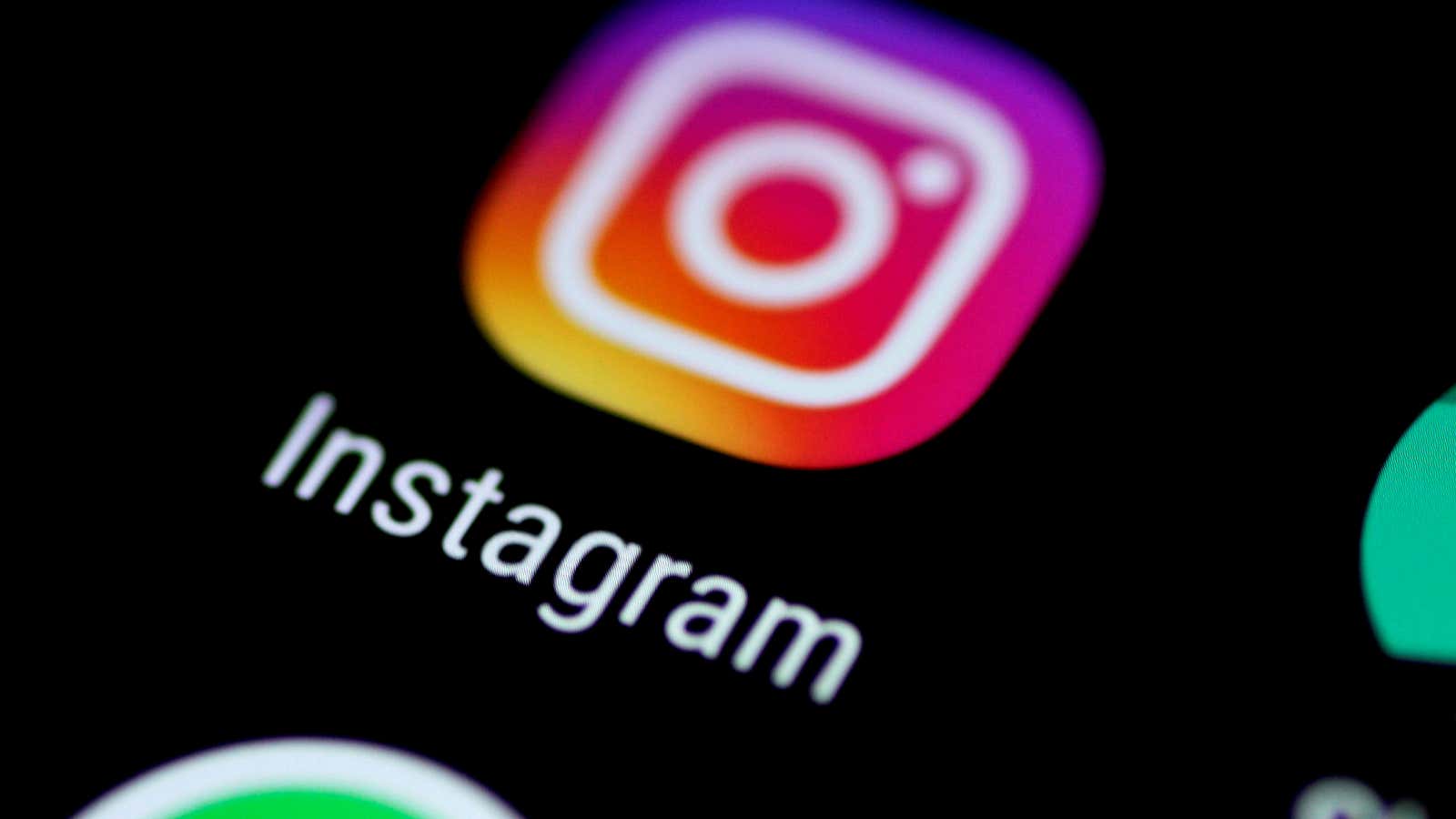Facebook is ramping up efforts against misinformation by expanding its fact-checking program to Instagram. Earlier this year, the image-sharing platform started testing the system in the US, and on Dec. 16, it announced a full, global roll-out.
It’s a significant move, since the photo app can be a powerful tool for coordinated disinformation campaigns, but also simply because it’s user base is massive, growing, and skews younger than Facebook’s.
Now, when one of the independent fact-checking organizations that Facebook works with finds a post false, Instagram will reduce the post’s distribution, and remove it from the platform’s discovery channels—the Explore section and hashtag pages. The platform will hide the post behind a warning screen, add clear labeling to indicate the content is factually questionable, and include links to articles that debunk the claim. The company also will use image-matching technology to find similar content. And any false post that is shared on Facebook will be automatically labeled as such on Instagram and vice versa.
Facebook first started its fact-checking program in 2016. It’s been ridden with issues. Fact-checking partners quit the partnership. Some of the approaches it had been trying out failed miserably—like one where fact-checkers attached literal red warning flags to content. Research showed this solution was actually counterproductive. And, since it relies in large part on user reports, it keeps missing misleading content. The vetting also does not apply to posts and ads by politicians, leaving a big chunk of content free to be as false as its authors would like.
Still, expanding fact-checking to Instagram is an important step, considering that Russian operatives used the platform to manipulate the 2016 US election, proving even more influential than Facebook itself. “Ultimately, IRA activity and engagement with Americans through Instagram accounts dramatically eclipsed the comparable interaction achieved through Facebook pages,” reads a Senate report from earlier this year.
Observers also say Instagram will likely play a big role in the 2020 presidential election.
